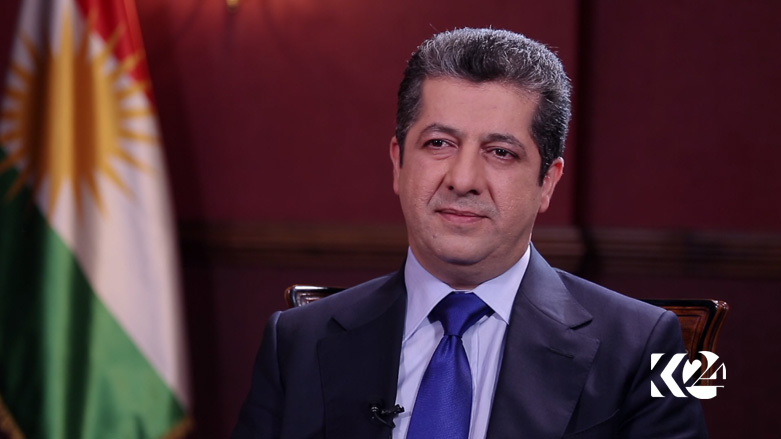ISIS threat remains, warns Kurdistan security chief: Report

ERBIL (Kurdistan 24) – Kurdistan Region Security Council (KRSC) Chancellor Masrour Barzani highlighted the clear threat the Islamic State continues to pose with the remaining underlying issues that contributed to the group’s ascendancy unaddressed.
His comments were published on Saturday in an article in The Guardian that outlined the extremist group’s 2014 rise to prominence and the eventual encirclement and military defeat in the Syrian village of Baghouz as the US-backed Syrian Democratic Forces (SDF) announced the final territorial collapse of the Islamic State earlier in the day.
“Taking away territory from Isis was central to the war. While the cost has been high, and the aftermath palpable in areas across Iraq and Syria, the underlying political and economic conditions remain just as unresolved,” said Barzani.
Despite the Iraqi government’s declaration of defeat over the Islamic State in late 2017, public dissatisfaction with local reconstruction, services, employment, and poor standard of living remains prominent in areas the group once controlled. Barzani warned, “Unless regional governments address those grievances, Isis will remain one of many symptoms bound to re-emerge in a new form.”
Kurdish forces in both Iraq and Syria—the Peshmerga in the Kurdistan Region and the People’s Protection Units (YPG), which leads the SDF, in Syria—have been two of the most effective ground forces in the fight against the terrorist organization.
The war to retake Islamic State held areas has proven very costly, not only in treasure but also in lives. In the over three-year-long fight against the group, official numbers from the Kurdistan Region indicate that about 2,000 Peshmerga fighters have been killed while at least 12,000 have been injured. On Monday, the SDF also declared its casualties, saying that they have lost over 11,000 members in the fight and more than 21,000 had sustained injuries.
In Iraq, as is expected to be the case in Syria, Islamic State sleeper cells are now engaged in an insurgency, which is preventing some displaced peoples from returning to their areas of origin. With the central government yet to take sufficient measures to relieve security concerns or effectively aid the reconstruction of such locals in a way that facilitates the meaningful rebuilding of communities, many warn of resemblances to pre-ISIS complaints by residents.
Even in cities like Mosul where such projects are undertaken on a significant scale, their quality and workmanship are questionable and beleaguered civilians allege mass government corruption. Residents of the northern Iraqi city took to the streets on Friday and demanded the ouster of the provincial governor, long accused by locals of corrupt dealings within his administration. This came one day after an overcapacity ferry capsized and flipped over onto a crowd of passengers, hurling them into the Tigris river and killing over 90 of them.

The growing discontent with government officials mirrors similar sentiments in Iraq's central and southern provinces that, since last summer, have seen repeated mass protests, many of which have turned violent. Observers warn that such widespread public disillusionment in many of Iraq's Sunni-majority areas, however, is often in danger of manifesting as support for groups openly hostile to the government like the Islamic State.
“Isis is about ideology, not fighters or territory. The group has already adapted to territorial defeat by returning to insurgency in areas with pre-existing sectarian fault-lines,” Barzani stated.
The security chief also warned that the group “has gained renewed momentum in recent months across Iraq’s northern provinces using tactics it was always more comfortable with than holding territory. In areas freed from their terror, local sleeper cells have already reappeared to spread panic and fear.”
Along with their victory announcement on Monday, the SDF reaffirmed its commitments to continue its campaign against sleeper cells of the terrorist organization.
Editing by John J. Catherine
